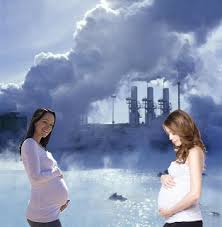Pollution’s links to autism

A new study has found the strongest link yet between air pollution and autism, which experts now say affects one in 50 U.S. schoolchildren. Pregnant women who lived in areas with high levels of diesel exhaust and airborne mercury were found to be twice as likely to have a child with autism as those living in places with the lowest pollution levels. The presence of other pollutants, such as lead, manganese, and methylene chloride, increased the odds of having a child with autism by 50 percent.
The study, conducted by the Harvard University School of Public Health, analyzed data from a long-term nationwide study of 116,430 nurses, 325 of whom had children with autism. “Our findings raise concerns,” study author Andrea Roberts tells NYDailyNews.com, “since, depending on the pollutant, 20 to 60 percent of the women in our study lived in areas where risk of autism was elevated.”

 Print
Print